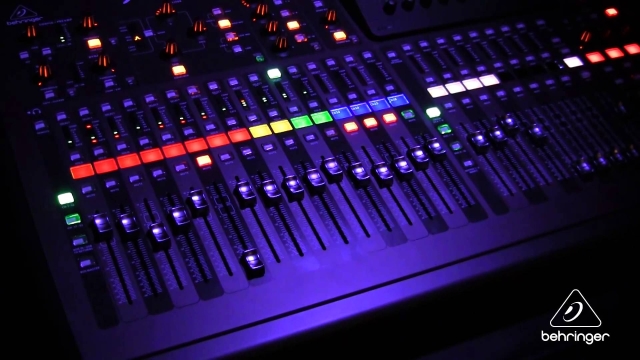
Shocking Innovations: The Future of Electricians in a Wired World

In an age where technology evolves at lightning speed, the role of electricians is undergoing a remarkable transformation. From traditional wiring to the integration of smart home systems and renewable energy solutions, the landscape of electrical work is changing drastically. Electricians, once primarily focused on installing and repairing conventional systems, are now at the forefront of a wired world that demands adaptability and innovation.
As we look to the future, it is clear that the skills and knowledge of electricians will be more crucial than ever. With the rise of electric vehicles, solar energy, and advanced home automation, these professionals are not just tradespeople; they are becoming essential players in the energy revolution. The challenges and opportunities ahead for electricians are both exciting and daunting, promising a future where their expertise will help shape our interconnected lives.
The Evolution of Electrical Work
The profession of electricians has undergone significant transformation since the advent of electricity in the late 19th century. Initially, electrical work was primarily focused on the installation of basic wiring and lighting fixtures in homes and businesses. Electricians were often seen as specialists who dealt with the unknown complexities of electrical circuits. As technology advanced, so did the tools and practices of electrical work, leading to a growing demand for trained professionals who could handle more sophisticated electrical systems and devices.
As the 20th century progressed, the scope of an electrician’s work expanded beyond simple wiring. The emergence of new technologies, such as computers and automated systems, introduced a plethora of electrical equipment that required skilled technicians. Electricians began to specialize in various fields, including residential, commercial, and industrial sectors, while also developing expertise in new power generation methods, renewable energy solutions, and advanced electrical safety standards. This diversification allowed electricians to adapt to the evolving demands of an increasingly electrified world.
In recent years, the rise of smart technology and the Internet of Things has further shaped the role of electricians. Today, they are not just installers but also consultants and problem solvers who integrate complex systems that link various devices and services. With an increasing emphasis on energy efficiency and sustainability, electricians are pivotal in implementing smart grids, energy management systems, and electric vehicle charging infrastructure. The future promises even more exciting developments as technology continues to progress, solidifying the electrician’s role as essential in a connected and energy-conscious society.
Smart Homes and Automation
Electrician Westfield Nj
The rise of smart homes is fundamentally transforming the role of electricians. As households increasingly adopt interconnected devices, electricians are now tasked with integrating and managing a variety of smart technologies. From smart thermostats and lighting systems to security cameras and home assistants, electricians play a crucial role in ensuring these devices communicate seamlessly. Their expertise not only involves the installation of wiring and outlets but also understanding how to configure these systems for optimal performance and security.
Automation in homes extends beyond mere convenience; it enhances energy efficiency and safety. Electricians are essential in helping homeowners realize these benefits through the implementation of smart grid technology, which allows for real-time monitoring and adjustments to energy consumption. As the Internet of Things (IoT) expands, electricians need to stay updated on new technologies and trends, ensuring they can offer clients the latest solutions in home energy management. This shifting landscape positions electricians as key players in promoting sustainable living.
Furthermore, the demand for smart home automation is prompting electricians to enhance their skill sets. Continuous education and training on the latest smart home technologies are now part of the career pathway for electricians. This evolution not only enhances their marketability but also helps them to better serve clients looking for advanced solutions. As smart homes become the norm, electricians will continue to be at the forefront of this innovation, adapting to meet the needs of a wired world.
Sustainable Energy Solutions
The demand for sustainable energy solutions is reshaping the role of electricians in today’s society. As households and businesses increasingly seek to reduce their carbon footprint, electricians are essential in installing and maintaining renewable energy systems. This includes solar panels, wind turbines, and energy-efficient appliances. Electricians are now required to possess a deep understanding of these technologies, ensuring they can meet the energy needs of modern consumers while promoting environmentally friendly practices.
Furthermore, the integration of smart technology in homes and businesses has opened new avenues for electricians to innovate sustainable energy usage. Smart meters and home automation systems allow users to monitor and control their energy consumption in real-time. Electricians play a critical role in installing these advanced systems, optimizing energy efficiency, and helping clients make informed decisions about their energy use. This shift not only empowers consumers but also helps in the broader commitment to sustainability.
Finally, as electric vehicles become more commonplace, electricians are increasingly involved in the installation of charging infrastructure. This transition necessitates specialized training and knowledge to effectively set up and maintain EV charging stations in residential and commercial settings. By facilitating the growth of electric vehicle adoption, electricians contribute significantly to decreasing greenhouse gas emissions, making them key players in promoting a sustainable future.
Emerging Technologies for Electricians
The landscape of the electrical profession is being transformed by a range of emerging technologies that enhance efficiency and improve safety. One notable innovation is the use of smart tools equipped with advanced sensors and connectivity features. These tools enable electricians to diagnose issues in real time, streamlining the troubleshooting process and minimizing downtime. As tools become smarter, electricians can increase their accuracy and reduce the risk of errors, leading to higher quality work and increased customer satisfaction.
Another significant trend is the integration of renewable energy systems into traditional electrical services. Electricians are increasingly required to install and maintain solar panels, wind turbines, and energy storage systems. This shift not only expands the skill set required for electricians but also aligns with the global push towards sustainable energy solutions. The ability to work with these systems will not only enhance an electrician’s employability but also position them as key players in the transition to a greener economy.
Moreover, advancements in automation and robotics are beginning to influence how electricians operate. Tools that incorporate artificial intelligence can assist in complex installations and routine maintenance tasks, allowing electricians to focus on higher-level problem-solving and design work. These technologies promise to increase productivity and reshape the role of electricians, making them vital contributors to both residential and commercial projects in a rapidly evolving electrical landscape.
The Future Workforce: Skills for Tomorrow
As we move deeper into a technologically advanced era, electricians will need to acquire a diverse set of skills to remain relevant in the workforce. Beyond traditional electrical knowledge, proficiency in digital technologies will become essential. This includes understanding smart home systems, energy management software, and automation technologies. Electricians who adapt to these innovations will stand out, ensuring they can effectively meet the growing demand for smart and energy-efficient solutions.
Moreover, the ability to work collaboratively in interdisciplinary teams will be crucial. Electricians will often find themselves working alongside engineers, architects, and IT specialists in the design and implementation of integrated systems. Developing strong communication and teamwork skills will allow electricians to contribute effectively and drive successful project outcomes. This collaboration will foster an environment where innovative ideas can flourish, leading to advancements in both residential and commercial settings.
Finally, with the increasing importance of sustainability and renewable energy sources, electricians will need to embrace green technologies. Knowledge of solar panel installation, electric vehicle charging infrastructure, and energy-efficient systems will be vital. Training and certification in these areas will not only enhance job prospects but also align with the global shift towards a more sustainable future. By cultivating these skills, electricians can play a pivotal role in shaping the energy landscape of tomorrow.



